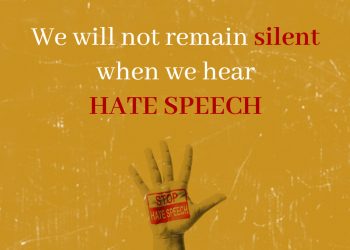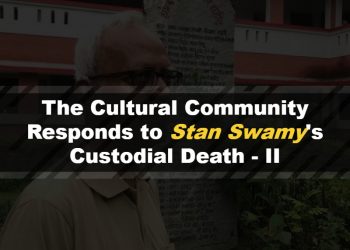
Home Minster, Amit Shah, last week said that the National Population Register will not classify anyone as “doubtful”. Shah said that he is saying on the “floor” of Rajya Sabha that no one will be marked “D”. However, he had previously said on the floor of parliament (and other places) that NRC will be conducted. Even now, our Home Minister has not openly said that NRC won’t be conducted. An exercise such as NPR would remain a threat to citizenship and civil liberties of every individual even if it doesn’t classify anyone as “doubtful”. This is for a number of reasons.
Firstly, it is difficult to believe this claim. Even a cursory glance at the Citizenship Rules, 2003 makes it apparent that the process of identifying “doubtful” citizens starts after the NPR data is collected. The NRC process begins with classifying people as “doubtful” based on the NPR data. People who have been classified as doubtful have to undergo the process of proving their citizenship by producing a set of documents.
If there is no intention to conduct NRC, then the questions pertaining to citizenship should be deleted or the exercise should be scrapped. The truth is that as long as the law empowers the Central government to implement NRC, any data collection in the process of NPR will always carry the risk of being followed by NRC. Assuming that NPR may not lead to an NRC at present, the government may start the process anytime in future because they already have the data.
Secondly, there are enough reasons to fear NPR irrespective of whether it leads to NRC immediately or not. Through the exercise of NPR, the government will collect a wide range of sensitive information about every individual, including the information needed to decide the citizenship status of an individual. The information collected for NPR has Aadhaar details seeded into it. Together, they aid in creating a profile of every individual using their personal data which may prove valuable for mass surveillance.
NPR: part of larger “profiling” strategy?
What has received less attention amid the threat that NPR-NRIC poses to citizenship status is NPR’s role in data profiling and its relationship with Aadhaar. Both the exercises started around a decade ago and clashed with each other. Even while there were controversies over the difference between both the exercises, their effectiveness and lack of proper legal framework for both, the exercises continued enrollment of individuals.
As there was constant data exchange between the two, they remained closely connected to each other. In a press note issued by the government of India in 2012, it was declared that both processes should continue simultaneously as they are being carried out for different purposes. In an effort to avoid “overlap” or “duplication” it was declared the biometric data for NPR would be sourced from Aadhaar for people who had already enrolled under the scheme.
The convergence of data from both the exercises is also evident from the fact that NPR manual issued for the 2020 NPR states that the enumerator has to verify the Aadhar number already mentioned in the NPR form for each household.
Intrusive details in NPR?
The range of information collected by NPR is quite alarming. Citizenship Rules, 2003 authorises the central government to collect demographic and biometric details for creating the NPR. However, it does not lay down any precise framework for collection of such information. The NPR 2020 manual issued by the government for enumerators reveals that information such as name, date and place of birth, relationship to the head of the family, marriage (which includes information about divorce, death of the spouse etc.), will be gathered. Other important questions include date and place of birth of parents, permanent residence, and migration. What will be the outcome of such data gathering? Detailed profiling of every individual with information on private matters such as who they are married to, or was ever married to etc. This data will be available to the government at the click of a button.
This is not a simple attempt to collect and analyse demographic details of the population. Unlike census, which guarantees anonymity of the data collected, the NPR exercise stores this information against the names of the individual.
In addition to the demography related questions mentioned above, NPR 2020 also seeks details such as Aadhar number, Voter ID, PAN card number, Passport and Driving License. NPR would then become a link between different types of data concerning an individual.
Legality?
An additional reason that makes NPR worrisome is the lack of a proper legal framework. The NPR is carried out under The Citizenship (Registration of Citizens and Issue of National Identity Card) Rules, 2003. These rules were issued under section 14A of the Citizenship Act, 1955. However, the section only mentions the National Register of Indian Citizens and not NPR. It gives power to the government to make rules for creation of NRIC. The rules then lay down the process of creation of NPR and NRIC. Unlike Census, the citizenship rules do not have any provisions for anonymity or protection of data collected during NPR.
Aadhaar was also implemented only with the help of executive orders at the initial stage before a legal framework was created through The Aadhaar (Targeted Delivery of Financial and other Subsidies, Benefits and Services) Act, 2016. This practice of implementing data collection schemes without strong legislative backing is more dangerous because it gives a wide range of powers to the government and also leaves room for misuse of data. For example, Census data cannot be used for any other purpose or cannot be linked with Aadhaar database due to the protection guaranteed under the Census Act, 1948. NPR data, on other hand, has already been linked with Aadhar. It was also used for conducting the Socio-Economic and Caste Census in 2011.
The use of NPR data for any other purpose would be in violation of one of the main data protection principles laid down in the judgment of Justice Puttaswamy V Union of India, where the constitutional validity of the Aadhaar Act was challenged. The court laid down a criteria for data protection that a law, dealing with collection and storage of data, has to satisfy. The criterias includes — 1) Data minimisation 2) Purpose limitation 3) Time period for data retention 4) Data protection and security. It is highly doubtful if the provisions of NPR would satisfy these criteria.
Purpose limitation means that data collected for one purpose cannot be used for any other purpose. The purpose of NPR data, as per the Citizenship Rules is to ascertain citizenship status of a person. Hence, its use for any other purpose may violate the data protection norms and right to privacy. NPR provisions would also fail to qualify other principles mentioned. For example, with regard to data protection and security, there are simply no provisions under Citizenship Rules that provide the norms for data protection or time period of data retention.
Right to Privacy?
In the Justice Puttaswamy V. Union of India (2017) judgment, a nine judge bench of the Supreme Court laid down that right to privacy is a part of the fundamental rights guaranteed under the Constitution. It recognises the following aspects of the right to privacy — an intrusion with an individual’s body, informational privacy and privacy of choice. The interpretation of the first two aspects includes the ability to have control over dissemination of data about oneself and autonomy over one’s body.
NPR places wide control in the hands of the government over sensitive personal data and may pose a threat to an individual’s right to privacy. The existence of NPR, thus, creates an impending threat of losing citizenship and an attack on basic civil liberties.




